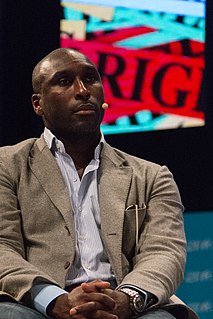A Quote by Emma Roberts
When you're a teenager, you don't want to bring your emotions to the surface and talk about them. You want to push them away.
Related Quotes
When you're young - when I was young - you want your emotions to be like the ones you read about in books. You want them to overturn your life, create and define a new reality. Later, I think, you want them to do something milder, something more practical: you want them to support your life as it is and has become. You want them to tell you that things are OK. And is there anything wrong with that?
I always tell people, "There's a book on everyone." I get some of that book before I do anything. If I want to deeply understand someone's reputation, I'll talk to their friends, their former bosses, their peers, and I'll learn a lot about them. I want them to be trusted. I want them to be respected. I want them to give a s - -. Then there are the intangibles: physical and emotional stamina, the ability to confront issues. I can ask all I want about those things, but I also have to see a lot of it.
Whereas in America we are so fearful of mortality, we don't want to talk about it, we don't think about it, and in many ways we treat elderly people as invisible because they are a constant reminder of our own mortality. We put them away and put them in retirement homes so we don't want to deal with that.
I do not want to know what you will hope for. I want to know what you will work for. I do not want your sympathy for the needs of humanity. I want your muscle. As the wagon driver said when they came to a long, hard hill: ‘Them that’s going on with us, get out and push. Them that ain’t, get out of the way’.
You don't want to block your thoughts, emotions, and so on; nor do you want to chase after them. If you chase after them, if you let them lead you, they begin to define you, and you lose your ability to respond openly and spontaneously in the present moment. On the other hand, if you attempt to block your thoughts, your mind can become quite tight and small.




































